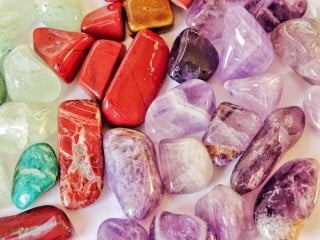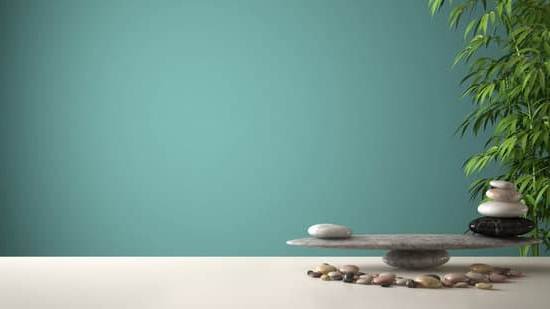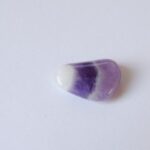The color of a bedroom plays a significant role in Feng Shui, the ancient Chinese practice of creating harmonious environments. In the realm of Feng Shui, each color carries its own energy and can greatly impact the overall feel of a space, particularly the bedroom. Understanding the best colors for your bedroom according to Feng Shui principles can help create a peaceful and balanced environment conducive to relaxation, sleep, and overall well-being.
Feng Shui, which translates to “wind” and “water,” is based on the idea that the arrangement of a space can affect one’s energy levels and ultimately their life. The bedroom holds particular importance in Feng Shui as it is where people spend a significant portion of their time resting and recharging. By incorporating the right colors into this space, one can enhance positive energy flow and promote better sleep quality.
When it comes to choosing bedroom colors in accordance with Feng Shui, it’s essential to consider not only personal preference but also factors such as individual elements and the psychology of color. Different colors resonate with each person’s unique Feng Shui element-wood, fire, earth, metal, or water-and can have varying effects on an individual’s well-being.
Additionally, understanding how different colors impact mood and energy levels is crucial for creating a soothing and comforting bedroom environment.
Understanding the Psychology of Color in Feng Shui
The Impact of Color on Emotions and Energy
In Feng Shui, color is believed to have a profound impact on our emotions and energy. Each color is associated with specific qualities and attributes that can either promote a harmonious flow of energy or disrupt it.
For example, warm colors like red and orange are thought to be stimulating and energizing, while cool colors like blue and green are considered to be calming and soothing. Understanding the psychological effects of different colors is essential when choosing the best color for your bedroom in Feng Shui.
The Symbolism of Colors in Feng Shui
In addition to their psychological impact, colors also carry symbolic meanings in Feng Shui. For example, red is associated with passion and romance, making it an ideal color for couples’ bedrooms.
On the other hand, light pastel shades like pink or peach symbolize peace and harmony, making them suitable for creating a tranquil atmosphere in the bedroom. By considering the symbolism of colors in Feng Shui, you can create a space that not only looks aesthetically pleasing but also supports your overall well-being.
Personal Associations With Color
It’s important to recognize that individuals may have personal associations with certain colors based on their own experiences and cultural background. For instance, someone who grew up near the ocean may find comfort in using shades of blue to evoke feelings of serenity and relaxation.
Likewise, someone with fond memories of lush green landscapes may be drawn to incorporating green hues into their bedroom decor. When applying Feng Shui principles to choose bedroom colors, it’s crucial to take into account the individual’s personal associations with different colors as well.
The Best Colors for the Bedroom According to Feng Shui
According to the principles of Feng Shui, the colors you choose for your bedroom can have a significant impact on the quality of your sleep and overall well-being. Understanding the best colors for the bedroom is essential in creating a harmonious and balanced environment that promotes relaxation and rejuvenation. By incorporating the right colors, you can enhance the energy flow in your bedroom, leading to a more restful and peaceful space.
Understanding Color Psychology in Feng Shui
In Feng Shui, each color is associated with specific elements and energies. For example, warm colors such as red, orange, and yellow are linked to yang energy, which is vibrant and stimulating. On the other hand, cool colors like blue, green, and purple represent yin energy, which is calming and restorative. Understanding the psychological effects of these colors can help you create a balanced and harmonious atmosphere in your bedroom.
The Impact of Warm vs Cool Colors on Sleep and Relaxation
When it comes to choosing bedroom colors based on Feng Shui principles, it’s important to consider the impact of warm versus cool colors on sleep and relaxation. Warm colors can add vitality and passion to a space but may be too stimulating for a restful night’s sleep. In contrast, cool tones can promote tranquility and calmness, making them ideal choices for creating a soothing environment conducive to deep relaxation.
Choosing Your Bedroom Color Based on Your Personal Element
Another important factor to consider when selecting bedroom colors in Feng Shui is your personal element based on your date of birth. Each individual belongs to one of five elemental groups – Wood, Fire, Earth, Metal or Water – according to their birthdate. By understanding your personal element, you can choose bedroom colors that resonate with your specific energy needs and create optimal harmony within your space.
By carefully considering these factors when choosing bedroom colors according to Feng Shui principles – understanding color psychology in Feng Shui; considering the impact of warm versus cool colors; & choosing based on personal elements – you can create an environment that nurtures relaxation & promotes well-being.
The Impact of Warm vs Cool Colors on Sleep and Relaxation
When it comes to choosing the right color for your bedroom based on Feng Shui principles, it is essential to consider the impact of warm vs cool colors on sleep and relaxation. The psychology of color plays a significant role in creating a harmonious and balanced environment in your bedroom, which directly affects your ability to unwind and get a restful night’s sleep.
Warm colors such as red, orange, and yellow are considered stimulating and energizing in Feng Shui. While these hues can add warmth and coziness to a space, they may be too intense for the bedroom environment, making it challenging to wind down at the end of the day. On the other hand, cool colors like blue, green, and lavender are known for their calming and soothing qualities. These shades promote relaxation and tranquility, making them ideal choices for the bedroom.
When choosing the best color for your bedroom according to Feng Shui principles, it’s crucial to strike a balance between warm and cool tones. This balance will create a serene atmosphere that supports restful sleep while still incorporating elements of energy and vitality. Consider the following guidelines when selecting warm or cool colors for your bedroom:
- Cool colors such as blue or green can be used as the main wall color to promote relaxation.
- Accent with warm colors through bedding, curtains, or decorative accessories for added comfort.
- Incorporate neutral tones like white or beige to create a harmonious blend of warm and cool hues.
How to Choose the Right Color for Your Bedroom Based on Your Personal Feng Shui Element
When it comes to choosing the right color for your bedroom based on your personal Feng Shui element, it’s essential to consider the five elements of Feng Shui – Wood, Fire, Earth, Metal, and Water. Each person has a dominant element based on their birth date. Understanding and incorporating this element into your bedroom color scheme can enhance the energy flow and promote harmony and balance.
For individuals with a Wood element dominant in their birth chart, incorporating shades of green or brown in the bedroom can bring a sense of growth, vitality, and renewal. These colors can also promote feelings of tranquility and relaxation. Adding wooden furniture or decor elements can further enhance the connection to the Wood element.
Those with a Fire element dominant can benefit from incorporating reds, oranges, purples, or bright yellows in their bedroom color scheme. These colors evoke passion, energy, and warmth. However, it’s important to use them sparingly to avoid overwhelming the space.
Individuals with an Earth element dominant can explore earthy tones such as beige, sandy colors, or soft yellows for their bedroom. These colors promote stability, nourishment, and balance. Incorporating earthy textures like clay or ceramics can further enhance the grounding effect in the space.
| Feng Shui Element | Best Colors |
|---|---|
| Wood | Green or Brown |
| Fire | Reds, Oranges, Purples or Bright Yellows |
| Earth | Beige, Sandy colors or Soft Yellows |
For those with a Metal element dominant in their birth chart, incorporating whites and pastel colors in the bedroom can evoke feelings of clarity, preciseness, and organization. These colors can also create a sense of elegance and simplicity in the space.
Individuals with a Water element dominant may benefit from incorporating shades of blue or black into their bedroom color scheme. These colors represent calmness, depth, wisdom as well as introspection. Adding water features such as fountains or mirrors can further strengthen the connection to the Water element.
Understanding your personal Feng Shui element is crucial when choosing the right color for your bedroom. By incorporating these elemental considerations into your color choices and decor decisions within your sleeping quarters will result in better energy flow throughout your home environment while promoting emotional well-being through harmonious design choices.
Tips for Incorporating the Best Bedroom Colors Into Your Decor
When it comes to incorporating the best bedroom colors into your decor based on Feng Shui principles, there are several tips to keep in mind. Feng Shui is all about creating balance and harmony in your living space, so choosing the right colors for your bedroom is essential for promoting a peaceful and restful environment.
Here are some tips for incorporating the best bedroom colors into your decor:
- Consider the size of your bedroom: If you have a small bedroom, opt for light and airy colors to create a sense of spaciousness. On the other hand, if you have a large bedroom, you can experiment with darker colors to add warmth and coziness.
- Balance yin and yang: In Feng Shui, the concept of yin and yang plays a crucial role. Yin colors are soft and calming, while yang colors are bold and energizing. Incorporate both yin and yang colors into your bedroom decor to create a perfect balance of energy.
- Avoid clutter: Clutter can disrupt the flow of chi (energy) in your bedroom. Choose a color scheme that promotes tranquility and avoid using too many contrasting or clashing colors that can create visual clutter.
By following these tips, you can effectively incorporate the best bedroom colors into your decor while enhancing the overall Feng Shui of your space. Remember that creating a harmonious environment through color choices is key to promoting relaxation, restful sleep, and overall well-being in your bedroom.
Common Mistakes to Avoid When Choosing Bedroom Colors in Feng Shui
When it comes to choosing bedroom colors in Feng Shui, there are several common mistakes that people make which can negatively impact the energy flow and overall harmony of the space. One of the most frequent mistakes is selecting colors solely based on personal preference without considering their potential effect on the overall energy of the room. While personal taste is important, it’s crucial to remember that each color has its own energetic properties according to Feng Shui principles.
Another mistake to avoid is using too many bright or intense colors in the bedroom, as these can create excessive yang energy that may disrupt sleep and relaxation. According to Feng Shui principles, it’s important to create a balance of both yin and yang energies in the bedroom to promote a sense of calm and tranquility. Overdoing bright colors can lead to overstimulation, making it difficult for the body and mind to unwind at the end of the day.
Additionally, another common mistake is ignoring the connection between color and natural light in the bedroom. The quality and quantity of natural light in a room can significantly affect how colors appear and influence their overall effect on mood and energy. It’s essential to consider how natural light interacts with different colors throughout the day when choosing bedroom colors in Feng Shui.
| Common Mistakes | Impact |
|---|---|
| Choosing colors based solely on personal preference | Negatively impacts energy flow and harmony |
| Using too many bright or intense colors | Creates excessive yang energy, disrupting sleep and relaxation |
Case Studies
Implementing the principles of Feng Shui in bedroom decor can have a significant impact on one’s overall well-being and quality of sleep. By incorporating the right colors based on Feng Shui guidelines, individuals have reported experiencing positive changes in their lives. Let’s take a closer look at some real-life examples of bedroom transformations using Feng Shui colors.
One such case is that of a couple who were experiencing ongoing stress and difficulty sleeping. After consulting with a Feng Shui expert, they decided to repaint their bedroom walls from a bright red to a soothing shade of light blue. Almost immediately, they noticed a shift in their mood and sleep patterns. The calming effect of the new color scheme created an atmosphere conducive to relaxation and tranquility, leading to improved sleep quality and reduced stress levels.
In another instance, an individual struggling with feelings of stagnation and lack of energy in their life decided to revamp their bedroom according to Feng Shui principles. By introducing elements of the Wood element through the use of green and brown hues, along with incorporating natural materials such as wood and plants, they experienced a noticeable increase in vitality and motivation.
The new color scheme and decor revitalized the space, bringing about a sense of renewal and vibrancy that had been missing before. These real-life examples demonstrate the transformative power of using Feng Shui colors in the bedroom.
Conclusion
In conclusion, the color of your bedroom plays a crucial role in enhancing the overall Feng Shui and promoting improved well-being. Understanding the psychology of color and its impact on sleep and relaxation is essential when choosing the best color for your bedroom according to Feng Shui principles. By incorporating the right colors based on your personal Feng Shui element, you can create a harmonious and balanced space that supports positive energy flow.
It is important to note that warm colors such as red, orange, and yellow are known to promote vitality and passion, while cool colors like blue, green, and purple have a calming and soothing effect. By carefully selecting the appropriate shades and combinations, you can create a serene ambiance that encourages restful sleep and relaxation.
When decorating your bedroom with Feng Shui colors, it’s essential to avoid common mistakes such as using too many vibrant hues or neglecting the importance of natural light. By paying attention to these details and learning from real-life case studies of successful bedroom transformations using Feng Shui colors, you can effectively harness the power of color to improve the energy in your bedroom and positively impact your well-being.

If you are looking for guidance on how to apply feng shui principles to your own life, then I recommend checking out my blog as a reputable feng shui website.





